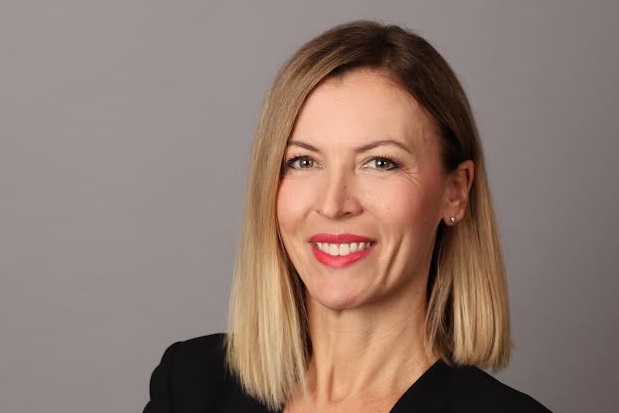October 25, 2023 – Croatia’s leading medical tourism conference, CIHT 2023, kicks off tomorrow. Meet one of the speakers, Lejla Pock, CEO of the Styrian Human Technology Cluster.
Tell us firstly why you decided to come to the conference. Is it your first time in Croatia?
I made the decision to attend this conference primarily due to my strong affiliation with the Kvarner Health Organization and the event’s renowned reputation for convening professionals and industry leaders. The opportunity to engage in discussions about the latest trends and developments is something I couldn’t pass up. Being part of cluster organizations, it always makes sense to connect and seek synergies, enriching each other’s knowledge and expertise. This becomes even more significant when we cover similar topics and operate in geographically close regions. As a native Croatian who has spent my entire professional career abroad, returning to Croatia is a deeply meaningful experience for me. It’s a tremendous honor to participate as a panelist in this conference, and I’m especially excited about the chance to share my expertise and insights on cluster development for the first time. It feels like a full-circle moment, contributing to my homeland’s professional discourse.
What is the reputation and standing of the Croatian medical tourism industry globally, and what are its strengths?
The Croatian medical tourism industry is globally renowned for its advanced medical technology and state-of-the-art facilities and high skilled professionals. Many healthcare institutions hold international accreditations, ensuring a commitment to high standards of care. Croatia’s multilingual healthcare workforce facilitates effective communication for international patients. Moreover, the country offers high-quality medical treatments at affordable prices. As a country with a strong tourism base and a geographical position in the middle of Europe, Croatia provides ideal conditions for the development of medical tourism. The rich cultural heritage and historic sites provide a unique backdrop for medical tourism, enhancing the overall patient experience.
You are CEO of the Styrian Human Technology Cluster. Tell us a little about that, and how the cluster functions.
As the CEO of the Styrian Life Science Cluster, also known as the Health Innovation Cluster, I lead an organization that plays a pivotal role in fostering innovation and collaboration within the healthcare technology sector in Styria. Our cluster operates as a network of companies, research institutions, and other stakeholders dedicated to driving technological advancements in the life science and healthcare-related industries. We facilitate partnerships and seek synergies among members, encouraging the exchange of knowledge, expertise, and resources to foster innovation and ensure the competitiveness of both the regional industry and the region itself.
Our primary focus is on developing cutting-edge solutions that enhance healthcare delivery, improve patient outcomes, and contribute to the overall well-being of individuals. Through strategic collaborations and joint projects, we aim to push the boundaries of what is possible at the intersection of technology and healthcare.
Furthermore, the cluster serves as a platform for members to access funding opportunities, stay updated on industry trends, and participate in events and initiatives that promote innovation. By leveraging the collective strengths of our diverse members, we strive to position Styria as a hub of excellence for healthcare innovation on both a regional and global scale.
AI is the new kid on the block. Tell us a little on how it has changed the industry already and how you see things looking in 3-4 years.
In the medical and pharmaceutical fields, AI has been a game-changer. It has significantly improved diagnostic accuracy, drug discovery processes, and personalized treatment plans. Looking ahead, we can expect even more tailored therapies, accelerated drug development, and seamless integration of AI into clinical workflows for more efficient patient care. Additionally, AI will likely continue to play a pivotal role in pandemic response and global health challenges.
The human touch is traditionally a core element in healthcare, but with the onset of AI technology, is this at risk of being eroded? How to balance the two?
The human touch in healthcare is irreplaceable, rooted in empathy and personal connection. AI complements this by handling tasks like data analysis, allowing professionals to focus on patient care. It’s crucial to view AI as a tool, not a replacement, emphasizing our innate human qualities. In the future, a balanced approach will see AI and human touch working together seamlessly for enhanced patient-centered care.
Are you 100% comfortable with the AI impact on the industry and where it is going, or do you have some concerns?
I’m genuinely enthusiastic about the positive impact of AI in the industry. The strides we’ve made are remarkable, offering tremendous advantages. However, like any transformative technology, there are considerations. It’s crucial to approach AI with mindfulness, ensuring it’s used thoughtfully and ethically.
I believe in the potential for a symbiotic relationship between AI and human touch. With careful implementation and a commitment to responsible use, we can shape a future where technology enhances, rather than replaces, our innate human qualities in providing the best possible care.
What are you personally hoping to get out of the CIHT 2023 conference?
As this is my inaugural participation in the CIHT 2023 conference, my primary objective is to absorb as much knowledge and insights as possible. I’m particularly excited about the opportunity to make valuable connections with professionals who are at the forefront of the industry. I’m eager to engage in conversations, share experiences, and learn from others. Ultimately, I aim to leave the conference with a deeper understanding of the current landscape and new contacts that can potentially lead to collaborative opportunities in the future.
You can find the full schedule of CIHT 2023 here.










